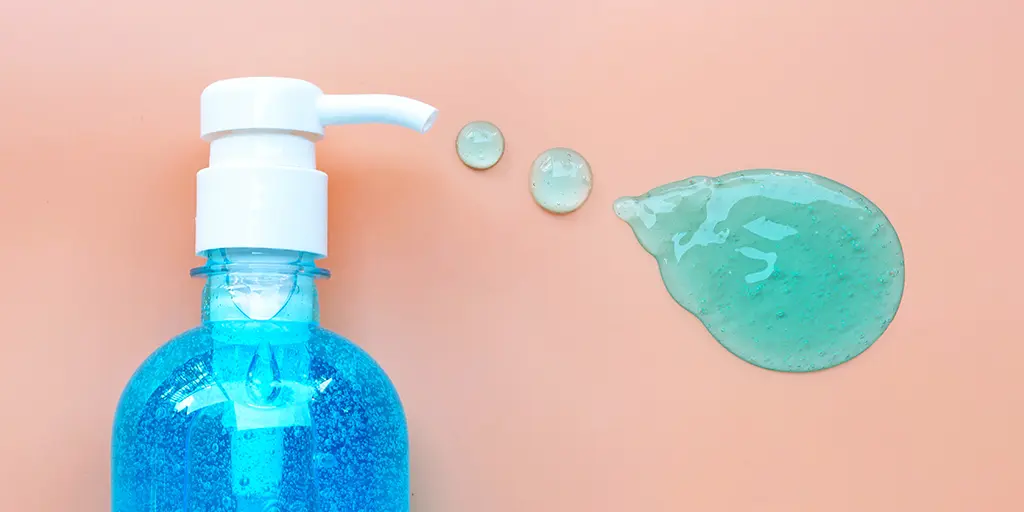What Happens If You Put Hand Sanitizer In Your Hair?
Have you ever been tempted to use hand sanitizer as a quick fix for greasy, dirty hair? I know I have! When you’re on the go and don’t have time to wash your hair properly, hand sanitizer can seem like an easy way to absorb oil and eliminate greasy buildup. However, using hand sanitizer on your hair is not recommended.
Hand sanitizer contains a high concentration of alcohol, which is great for killing germs on your hands. But alcohol is extremely drying for your hair and scalp. Putting hand sanitizer in your hair can lead to dry, brittle strands and scalp irritation. Hand sanitizer should only be used on hands, not hair.
Can hand sanitizer be used as a Dry shampoo?
Contents

The short answer is no; you should not use hand sanitizer as a dry shampoo. Dry shampoo is formulated to temporarily soak up oil and refresh dirty hair between washes. Hand sanitizer is not designed for this purpose.
Using hand sanitizer on your hair will damage strands. The alcohol in hand sanitizer strips the natural oils from your hair. This leaves hair dry, brittle, and lifeless. Alcohol is also irritating to the scalp. It can cause dandruff, itchiness, and even hair loss over time.
Additionally, hand sanitizer weakens hair and makes it prone to increased breakage. The alcohol damages the hair shaft, leading to split ends and frizziness.
Dry shampoo is a much better alternative for a quick fix between hair washes. Look for dry shampoos made for your hair type and texture. Apply it to the roots to absorb oil and add volume. Dry shampoo restores freshness without stripping your hair, like hand sanitizer does.
What Happens If You Put Hand Sanitizer in Your Hair?
Putting hand sanitizer in your hair has several negative effects:
- It strips the natural oils. Hand sanitizer contains alcohol, which removes the essential oils that keep hair strong and healthy. This leaves the hair feeling dry and brittle.
- It causes scalp irritation. The alcohol in hand sanitizer can irritate the scalp, leading to redness, itchiness, dandruff, and potentially hair loss.
- It damages hair. Alcohol weakens the hair shaft, causing strands to break more easily. Hair becomes prone to split ends and breakage.
- It’s not made for hair. Hand sanitizer is designed to kill germs on hands, not clean the scalp or hair. It’s not formulated to be used on your head.
The takeaway is that hand sanitizer should only be used on hands. The alcohol formula is meant for surface cleaning of the hands, not treating the hair or scalp. Using hand sanitizer on hair will likely do more harm than good.
Does hand sanitizer get rid of Greasy hair?
Hand sanitizer is not the best solution for greasy hair. While it does contain alcohol that can remove excess oil buildup, it strips away too much oil from your hair.
Yes, hand sanitizer will absorb the grease in overly oily hair. But it doesn’t just take away the excess grease; it removes all the natural oils your hair needs. This leaves your hair feeling dry, rough, and brittle.
Instead of hand sanitizer, try these gentle alternatives for greasy hair:
- Use a mild, clarifying shampoo or conditioner to gently remove dirt and oil
- Rinse hair with plain water for a quick refresh between washes
- Make a paste of baking soda and water to absorb grease without harsh chemicals
The key is being gentle. You want to remove the grease without over-drying your hair.
Can hand sanitizer be used to kill germs in hair?
Hand sanitizer is not well-suited for killing germs in hair. While the alcohol can help eliminate bacteria, it’s very drying to the hair and scalp.
The alcohol in hand sanitizer strips away the natural oils that keep your hair healthy. This leads to dry, brittle hair that is prone to breakage.
It’s better to use a shampoo or conditioner that contains antimicrobial ingredients to kill germs without harming your hair. Look for gentle cleansers with tea tree oil, neem oil, zinc pyrithione, selenium sulfide, or ketoconazole to target bacteria and fungi.
Rinse your hair thoroughly after using hand sanitizer to remove any residue. Follow up with a moisturizing shampoo and conditioner to counteract the drying effects and maintain healthy hair.
Alternatives To Hand Sanitizer For Greasy Hair
Rather than using harsh hand sanitizer on your greasy hair, your best bet is to use a targeted shampoo formulated for oily hair. Not all shampoos are equal when it comes to fighting grease. Look for products designed to tackle the root causes of overactive oil glands.
There are several factors that can contribute to greasy hair:
- Overactive sebaceous glands
- Hormonal imbalances
- Stress
Here are some great shampoo options for greasy hair of different severity:
- Nizoral A-D Anti-Dandruff Shampoo: Deeply cleanses hair and controls dandruff
- Head and Shoulders Clinical Strength: Fights severe dandruff and seborrheic dermatitis
- Selsun Blue Medicated Maximum Strength: For moderate to severe dandruff
- Dove Dermacare Scalp Anti-Dandruff Shampoo: Gently cleanses and controls dandruff
- Neutrogena T/Gel Therapeutic Shampoo: For moderate to severe dandruff
Look for shampoos with salicylic acid, pyrithione zinc, or ketoconazole to reduce oil production and promote a healthy scalp environment. A clarifying shampoo can also help remove product buildup that may be weighing hair down.
Conclusion
The bottom line is that hand sanitizer should not be used on hair. The alcohol in hand sanitizer is too harsh and drying for the strands and the scalp. Using hand sanitizer can damage hair by stripping oils, irritating the scalp, and causing breakage.
While hand sanitizer may temporarily help absorb excess grease, it’s not a good long-term solution. Your best bet is to use targeted shampoos and gentle cleansers formulated specifically for greasy hair. This will refresh hair without causing irritation or dryness.
Remember, hand sanitizer is meant for sanitizing hands only! Use shampoo and conditioner as directed to maintain healthy, grease-free hair.

Founded by Sophia Rodriguez, IGXO Cosmetics is a PETA-certified, cruelty-free, and vegan makeup brand.





